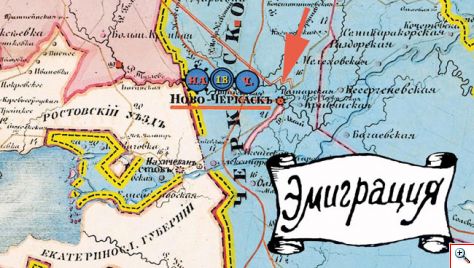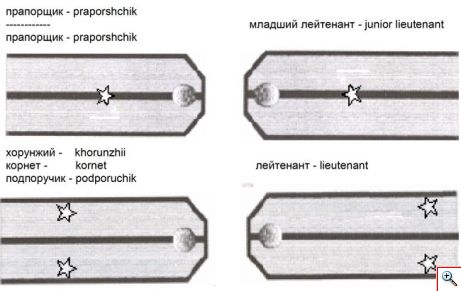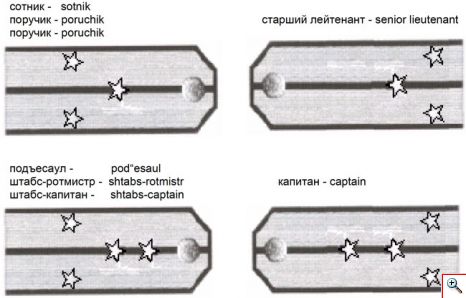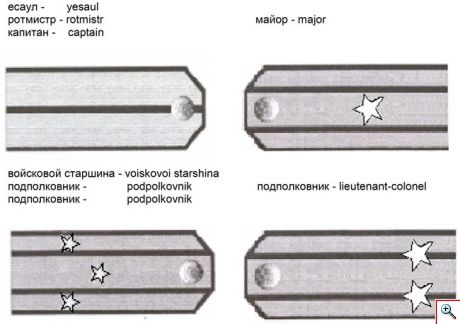Наступали Рождественские праздники. Хор начал репетировать религиоз-ные гимны. Были введены дополнительные занятия бальными танцами, их прово-дила мадам Софи. Решили организовать танцевальные вечера и пригласить рус-ских девочек, которые обучались в лицее, расположенном на о. Проти в Мраморном море. Все это напоминало семейную атмосферу уюта и спокойствия. Празд-ники были упоительными, жизнь шла своим чередом.
Распорядок дня в Британской школе для русских мальчиков выглядел так :
6.00 подъем, утренний туалет, заправка постелей ;
7.30 молитва; завтрак (чай, хлеб, масло, варенье) ;
8.00 – 12.00 занятия; обед из 2-х блюд ;
13.30 – 15.15 занятий ;
15.15 – 16.15 ручной труд ;
16.30 чай с бутербродом ;
до 19.00 свободное время (занятия спортом, игры) ;
20.30 отбой для младших классов ;
22.30 отбой для старших классов.
Благодаря умеренному климату мальчики могли гулять в парке даже зимой. Николай получил письмо от дяди, которому удалось бежать в Югославию (Афана-сий Филиппович Быкадоров эвакуировался в Сербию в 1920 г.). В письмо дядя вло-жил 5 долларов, которые были очень кстати, на них можно было что-либо купить на рынке.
Николай подружился с одним из мальчиков по фамилии Тарковский, отец ко-торого жил в Константинополе. Тарковский ужасно боялся блох. Однажды ночью он проснулся от того, что блоха укусила его за мягкое место, с перепугу поднял жуткий крик, перебудил всю комнату.
Лишь у четверых мальчиков были родители в Константинополе; они могли каждую неделю отлучаться из школы. Возвращаясь из города, Тарковский прино-сил что-нибудь Николаю. Отец Тарковского был губернатором в Дагестане, по-этому ему удалось сохранить большую часть состояния. У кузена Николая (Павла Рудакова) также в городе была тетка, впоследствии вместе с ней он уехал в Аме-рику.
На Пасху предполагалась праздничная служба в школьной часовне. Нача-лась тщательная подготовка. Николай с энтузиазмом пел в хоре. Этот период запомнился еще и потому, что тембр его голоса стал меняться. В конце Пасхаль-ных каникул кадеты 5, 6 и 7 классов отправились на прогулку в город. Это было интересно в первую очередь потому, что многие из них не были в Константино-поле, хотя много читали и слышали об этом великолепном городе. Всех поразил Софийский собор, его мозаика, а также дверь в крепостной стене, которая окру-жала город еще во времена Византийской империи. Была рассказана история, что во время войны Византии с турками несколько турецких воинов проникло в город именно через эту дверь, их появление было столь неожиданным, что жители го-рода совершенно растерялись, и султан Селим смог без труда захватить кре-пость, названную впоследствии Константинополем. После осмотра достоприме-чательностей кадеты зашли во французский ресторан. Ребятам очень понравил-ся обед, особенно жаренный картофель. Некоторые так “переусердствовали”, что потом стало плохо. Затем решили отправиться на Большой Базар, где можно бы-ло найти все, что угодно. Весь этот поход в город оставил незабываемые впе-чатления.
Наступило время экзаменов. Подготовка, волнение, успешная сдача. Лет-ние каникулы: купание, футбол, теннис. В июле состоялось еще одно событие, за-помнившееся надолго. Помощник посла Британии пригласил кадетов на прогулку на яхте. Погода была великолепная, яхта шла вдоль турецкого берега, где возвы-шались белые дворцы султанов и живописные минареты. Состоялась высадка на пляж непосредственно у входа в Черное море. Купались, загорали, наслаждались угощениями, приготовленными экипажем. В тот момент, когда кадеты возвраща-лись на яхту, к ним подошел незнакомый человек. Им оказался дядя Николая. В короткой беседе он поведал о том, что творится дома. Только вечером (в 21.00) ях-та вернулась в школу.
В начале учебного года недалеко от школы загорелись деревянные пост-ройки. Все мальчики бросились на помощь пожарным. Поскольку насос не работал, воду приходилось носить ведрами из залива. Положение было очень опасным и лишь помощь английских моряков помогла остановить пожар.
Кадеты, успешно сдавшие экзамены, продолжили свое обучение. Осталь-ных отправили во Францию и Канаду. Стали поговаривать о том, что на дальней-шее финансирование школы нет денег. Опять появилось состояние неувереннос-ти. 16 октября 1923 г. вспыхнул еще один пожар, на этот раз в самой школе. Сильно пострадали классные комнаты. Прошел слух, что пожар был неслучайным, будто бы таким образом Советская Россия хотела вернуть себе здание посоль-ства. К тому же Турция признала советское государство и дирекция была постав-лена в известность о необходимости подыскать новое место. Все это нарушало размеренную жизнь в школе.
Радовало только приближающееся Рождество. Николай был одним из не-многих счастливчиков, которые получали письма из России. В последнем письме матери он нашел также листочки с пожеланиями удачи и счастья от своих дру-зей, оставшихся в родной станице. Мальчик написал письмо деду с просьбой вы-слать генеалогическое дерево своего рода, а также свидетельство, подтвержда-ющее его дворянское происхождение. Дед просьбу выполнил, но несмотря на то, что он отправил свидетельство дипломатической почтой, Советское посоль-ство его конфисковало. Примерно в это же время в Турции произошли значитель-ные политические изменения. Мустафа Кемал Паша захватил Константинополь, новое правительство решило переименовать город в Стамбул.
6 декабря был устроен праздник. Кадеты порадовали школу театрализо-ванным представлением; были подготовлены костюмы и декорации. Николай уча-ствовал в сцене «Бурлаки на Волге». Дирекция и воспитанники школы очень тепло приняли спектакль, настроение улучшилось. В тот же день был проведен фут-больный матч между кадетами и греческой командой из Буюк-Дере, со счетом 3:2 победили наши. В награду за это на следующий день был разрешен выход в город. Прогулка по роскошным улицам этого прекрасного города доставила большое удо-вольствие.
В январе состоялся перевод школы в Эренкой. Переезд вызвал дополни-тельные расходы. Новая школа располагалась далеко от берега, что исключало возможность купаться в море. Ребята расположились в недавно построенных бараках. Школьный комплекс занимал площадь в 6 гектаров, здесь было 3 камен-ных постройки и 6 деревянных бараков. Ребятам предстояло вместе с рабочими подготовить школу к учебному процессу. Финансирование осуществлялось анг-лийским правительством. Начались работы по переустройству. Кадеты дежури-ли на кухне и в бараках. Физический труд поднял настроение, но 2-х месячный вынужденный перерыв предопределил некоторое отставание в учебе. Пришлось нагонять. Жизнь вошла в нормальное русло, этому также способствовало хоро-шее питание, организованное в школе.
Николай состоял в переписке с русской лицеисткой, с которой он познако-мился на Рождество в прошлом году. Правда, назвать это любовью было нельзя, скорее – взаимная симпатия.
The Christmas holiday was about to begin. The choir began rehearsing gospels. A ballroom-dancing course has been introduced, held by Madame Sophie. It has been decided to conduct dance parties and to invite Russian girls from a lyceum on the island of Proty in the Sea of Marmora. All that reminded of a domestic atmosphere of cosiness and calm. The holidays were ravishing; life followed its normal course.
The order of day at Anglo-Russian boy school was as followed :
06.00 Reveille, dressing up, making the beds
07.30 Prayer, breakfast (tea, bread, butter, jam)
8.00 – 12.00 Lessons ; a two-course lunch
13.30 - 15.15 Lessons
15.15 – 16.15 Handicrafts
16.30 Tea with a sandwich
Till 19.30 Leisure time (sports, games)
20.30 Lights-out for junior grades
22.30 Lights-out for senior grades
Thanks to moderate climate the boys could go for a walk in the park even in winter. Nikolay has got a letter from his uncle, who had been able to escape to Yugoslavia (Afana-siy Filippovich Bykadorow evacuated to Serbia in 1920). Uncle enclosed five dollars in the envelope, which came in handy, allowing for some purchases at the market.
Nikolay made friends with a boy named Tarkovskiy, whose father lived in Constanti-nople. Tarkovskiy was afraid of fleas. One night he woke up because a flea had stung him in his seat of honour; his horrible yells woke the whole dormitory.
Only four of the boys had their parents live in Constantinople; they could go on leave every week. Tarkovskiy used to bring something for Nikolay on his way back from the city. Tarkovskiy’s father had been Governor of Dagestan and therefore could keep the most of his possessions. Nikolay’s cousin had an aunt living in the city too; he left with her for America subsequently.
On Passover the proper at the school chapel was due. Meticulous preparations commenced. Nikolay sang in the choir enthusiastically. This period of time he remembered also because his voice timbre started to change. At the end of the Passover holidays cadets of the fifth, sixth and seventh grades went for a walk into the city. It was in the first place interesting, because many have never been to Constantinople, despite having heard and read so much about this splendid city. Everybody was impressed by the Hagia Sophia and its mosaics; also by the door in the fortified wall, which had been surrounding the city since the time of the Byzantine Empire. A story, which had happened at the time of war between the Byzantine and the Turks, told of several Turkish warriors, who’d made their way into the walls through that very door. Their sudden appearance had taken the defenders so aback that Sultan Selim was able to force the fortress, which would be called Constantinople later on, with no difficulty. After sightseeing the cadets visited a French restaurant. The boys liked the dinner very much, especially the chips. Some were overzealous and felt sick afterwards. After that they decided to visit the Big Bazaar, where just about everything was to be found. This excursion into the city has left unforgettable memories.
The time has come for examinations. The preparation, the excitement, the pass. Summer vacations: swimming, football, tennis. In July there was an event to be remembe-red for a long time. A British Ambassador’s aide has invited the cadets to a yacht sail. The weather was marvellous, the yacht sailed along the Turkish coast, where white Sultans’ palaces and picturesque minarets rose high. Coming ashore occurred on a beach in the immediate proximity of the passage to the Black Sea. They swam, sunbathed, enjoyed refreshments made by the crew. When the cadets were returning onboard, a stranger approached them. He turned out to be Nikolay’s uncle. In a brief talk he told about what was happening at home. It was already night (21.00) when the yacht finally arrived at school.
At the beginning of the school year a fire broke out in wooden structures in the vicinity of the school. All the boys rushed to help the firemen. Due to the pump’s malfunction water had to be fetched from the gulf in buckets. The situation was grave and the fire could only be contained with the help of British sailors.
Cadets who had passed the examination continued their study. The rest was sent to France and Canada. There were talks of insufficient funding for the school to keep functioning. Uncertainty was the state to be in again. On the 16th of October yet another fire broke out, this time inside the school itself. The classrooms suffered great damage. There was a rumour of arson, an attempt by the Soviet Russia to return the Embassy’s building into her possession. In addition to that, Turkey has acknowledged the Soviet state and the school authorities were notified of the necessity to find other premises. All that disturbed the school routine.
The coming Christmas was the only thing to look forward to. Nikolay belonged to the few lucky ones who received correspondence from Russia. In the most recent letter from his mother he found also enclosed sheets with the best wishes of his friends who stayed back at his home stanitsa. The boy wrote to his grandfather asking him to send the family tree and the certificate of nobility. Grandfather did as asked, but the Soviet government confiscated the certificate, although it went by diplomatic post. At approximately the same time, significant political changes took place in Turkey. Mustafa Kemal Pasha seized Constantinople and the new government decided to rename the city into Istanbul.
There was a holiday on the 6th of December. Cadets entertained the school with a staged performance, for which costumes and scenery had been prepared. Nikolay took part in the “Barge haulers on Volga” scene. The school authorities and the pupils gave the performance a warm welcome, the overall spirits heightened. On the same day there was a football match between cadets and a Greek team from Buyuk-Dere. Our team won 3:2. As a reward they were allowed to go on leave into city on the day after. Walking splendid streets of this beautiful city was a great delight.
In January the school was transferred to Erenkoi. The resettlement brought new expenses. The new school was situated far from the shore, which cancelled swimming out. The boys made themselves at home in the newly built bunk houses. The school complex consisted of three stone structures and six wooden bunk houses; it occupied an area of six hectares. The boys had to prepare the school for studies together with the workers. British government provided the funding. Reconstruction work began. Cadets were on duty in the kitchen and in the barracks. Manual labour improved the overall mood, but the two-month forced interruption of the learning process resulted in some backlog which had to be caught up. Life fell back to normal, a well organized food supply also helped.
Nikolay corresponded with a Russian lyceum pupil he met on last Christmas. Howe-ver, this could hardly be called love; it was rather a mutual liking.
Военные чины. Military Ranks.
Современные чины. Modern ranks.
Чины и погоны в Советской (и современной Российской) армиях с 1943 г. до на-ших дней, также с различными названиями и небольшим изменением погон в сущнос-ти – небольшое изменение того, что было в начале ХХ века.
Обер-офицеры (четыре чина) стали именоваться младшими офицерами (также четыре чина), штаб-офицеры (три чина) – старшими офицерами (также три чина).
После окончания военного училища в обоих случаях выпускники производятся во второй офицерский чин. После окончания короткого офицерского курса (в военное время) выпускники производятся в первый офицерский чин.
Современные погоны проще для понимания. Младшие офицеры имеют один просвет и маленькие звезды, старшие офицеры – два просвета и большие звезды.
Ranks and shoulder straps in the Soviet (and modern Russian) armies from 1943 to the present day, although with different names and slightly changed shoulder straps, in essence, are not that dissimilar to what existed at the start of the XXth century.
Ober-officers (four ranks) came to be called junior officers (also four ranks); staff-officers (three ranks) – senior officers (also three ranks).
After completing military school in both cases graduates were promoted to the second officer rank. After completing a shortened officer’s course (in wartime) graduates were promoted to the first officer rank.
Modern shoulder straps are easier to understand. Junior officers have one space and small stars ; senior officers two spaces and big stars.
обер-офицеры младшие офицеры
subaltern-officers junior officers
 JDramas
JDramas  Russie
Russie  History of the Don Cossacks families 6
History of the Don Cossacks families 6
 JDramas
JDramas  Russie
Russie  History of the Don Cossacks families 6
History of the Don Cossacks families 6
























